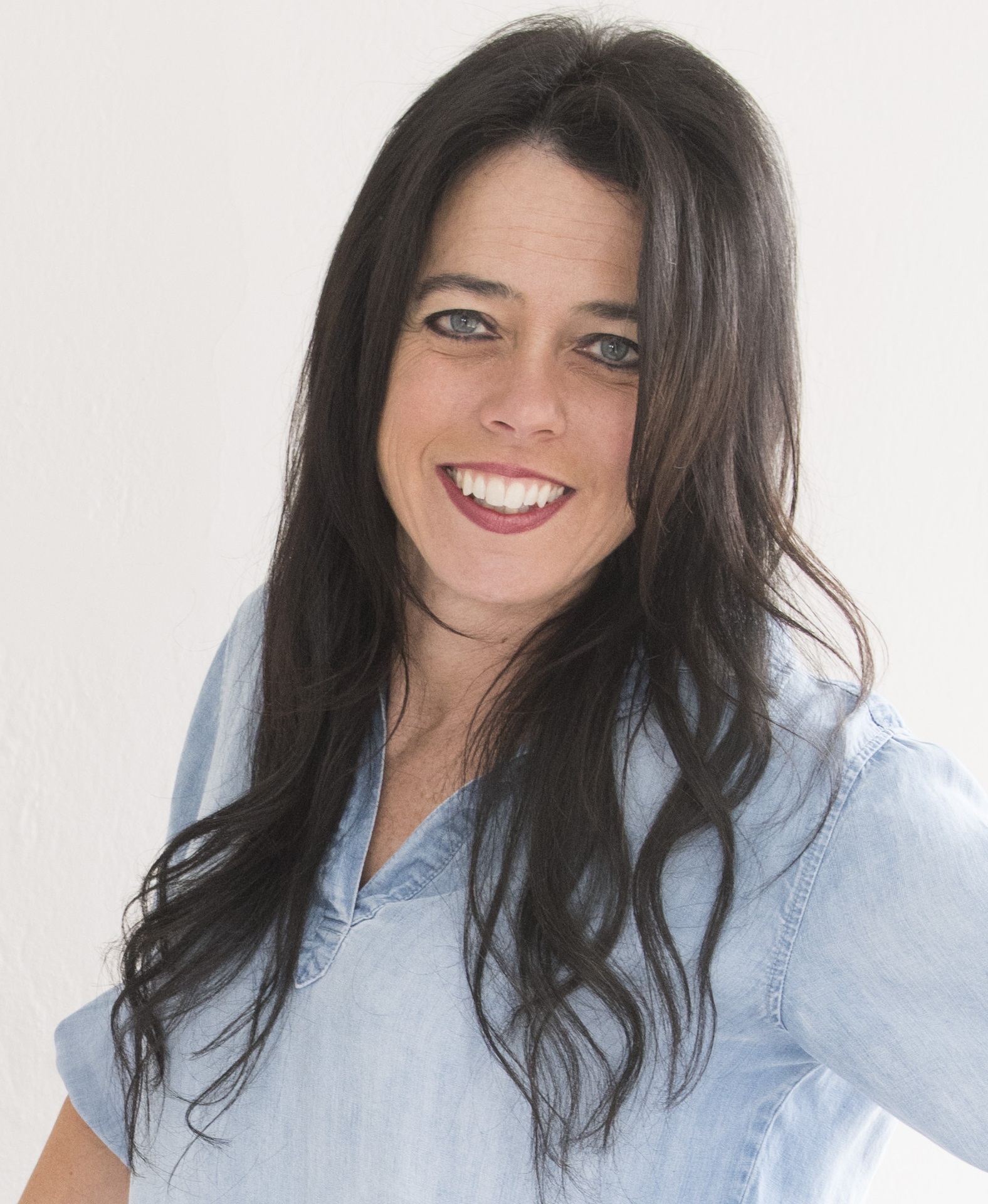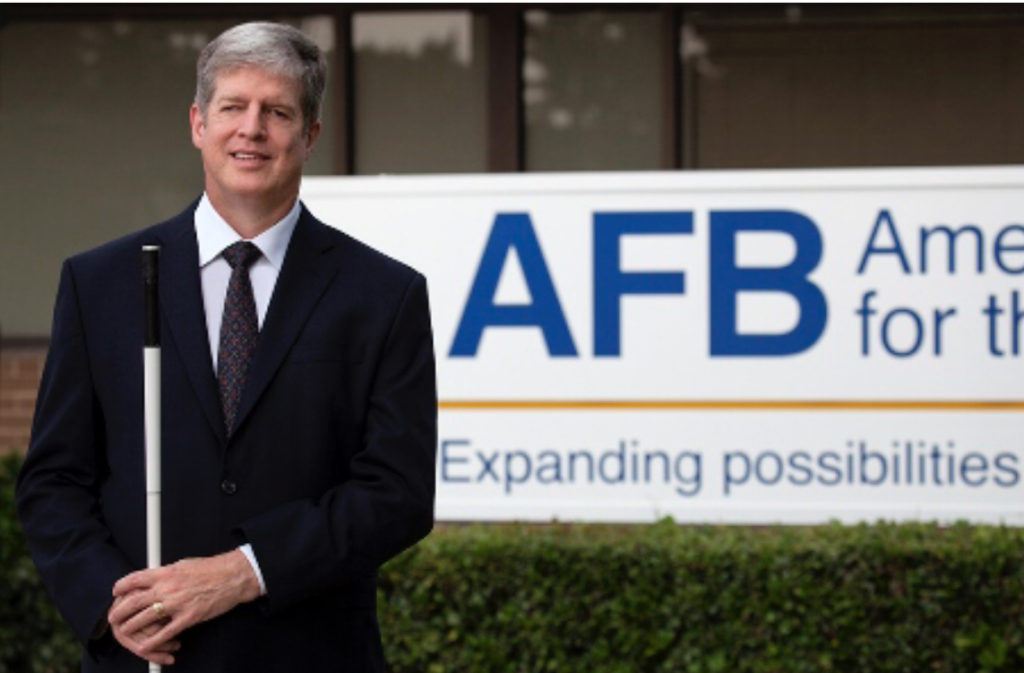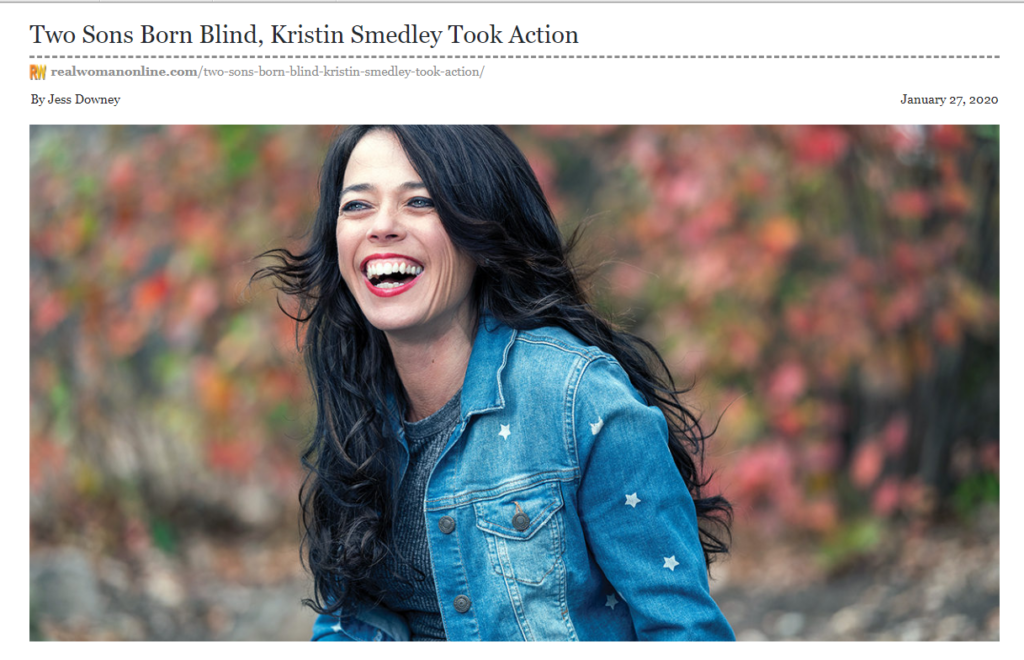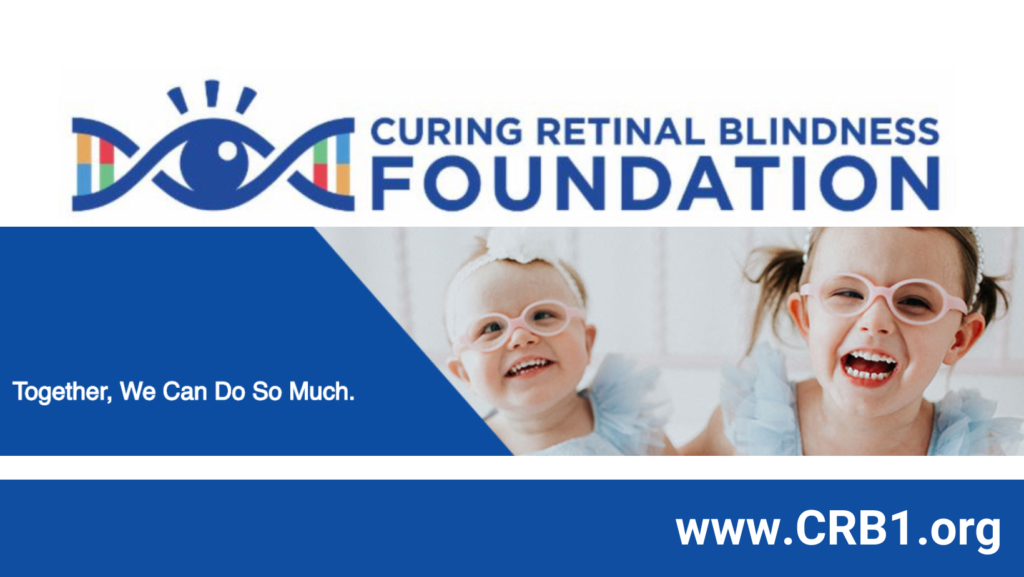Kirk Adams is CEO of American Foundation for the Blind (AFB), one of the largest blindness advocacy and support non profits in the United States, dedicated to changing the way the world sees blindness. I interviewed Kirk for my recently released book Thriving Blind because he is a successful blind adult and has extraordinary insight about parenting blind children. However, in our interview, Kirk revealed to me a dilemma I had not been exposed to yet.
We chatted a bit about the 70% unemployment rate in the blind community. Let that sink in for a sec: 70% of blind Americans are unemployed. There are several factors regarding that unacceptable statistic and you can learn my perspective on in in my TEDx talk. Kirk’s perspective on the statistic though, was new to me.
Kirk reports that there is a big dilemma blind people face when seeking a job. He says in Thriving Blind, “There is the ‘disclose or not disclose’ debate that we blind people seeking employment have to deal with.” When Kirk graduated college (achieving Phi Beta Kappa and Cum Laude) he sent out resumes and got a ton of phone interviews followed by in person interviews. He did not disclose his blindness until he walked into the hiring person’s office with his white cane and other tools he uses. And then: crickets. No job offers. Kirk says, “Employers just did not understand how a blind person could get the job done.”
In an effort to stop wasting his time, Kirk decided to disclose in his cover letter that he is blind, but he also described how he manages to do the required tasks and the tools he uses to do so. And you know what? He got no interview calls. Zero!
Interestingly enough, Kirk finally did get one door to open for him thanks to a person in his network that worked at the company too and could “vouch” for how talented he is. (Yet another reason I am so adamant about investing in a stellar network!)
My blind sons are dealing with this issue right now. Michael is a Sophomore in college at Penn State (WE ARE!) and just applied for a job on campus. He asked me to proofread his cover letter for the application. The letter was extraordinary and really showed his personality, skills, and commitment to excellence. However, not once did he mention his blindness. I asked him about it and he was kind of shocked. “What does blindness have to do with it, Mom?” To Michael, blindness is so in the background of his life, he has been navigating and succeeding so much, that it isn’t a first, or even second thought of his. Stay tuned to see if the hiring folks at Penn State agree.
My younger blind son, Mitchell, a junior in high school, is also seeking a part time job. He actually walked right into a local store, with his white cane and his abounding confidence, and asked for an application. He was given an on the spot interview, which included a brief discussion about the jobs available and how he would be able to perform each of them (bagging groceries, scooping ice cream) – as well as ones he could not do, ie work the cash register. He was told he would hear from them in a few days. After a week went by, Mitchell went back into the store and confidently, charmingly spoke to an office full of managers and employees, inquiring if they had made any decisions or if he could answer any additional questions they had. They were kind, but that was over five weeks ago and he has not heard anything from them. (Side note: the store just put a 20 foot sign out front that says “Now Hiring”)
What Kirk (and I, and my boys, and thousands of capable blind workers) want employers to know is this: Workers that are blind have valuable skills that give them an advantage over sighted candidates. As Kirk points out: “Blind people tend to be good at risk taking and creative problem solving. I have great ability and experience with managing teams of people. As a kid, I had to manage a team of adults that were doing things like reading tests to me and other things for my education. I had to learn how to effectively communicate with them. In college, I had to do the interviewing, hiring and firing of those folks and manage their schedules. That is what gave me experience in creating networks and teams as well as managing and leading in ways that serves me well in my work today.”
So, I am interested to have a conversation, either here or in real life, with those of you on the hiring side. I want to know your thoughts, your questions, everything. I’d like a real and productive conversation to change the bias that exists. My boys’ livelihood depends on it, as does the livelihood of thousands of others. And to those of you that are blind or visually impaired that have had success in the hiring process, chime in as well.
As Maya Angelou said: “When we know better we do better.” Let’s teach, learn and do better, together.
PS – You can read more about Kirk’s journey (including the fun way he met his wife!) in my book Thriving Blind: Stories of Real People Succeeding Without Sight, available on Amazon. Get his FREE chapter HERE.
[bctt tweet=” What Kirk (and I, and my boys, and thousands of capable blind workers) want employers to know is this: Workers that are blind have valuable skills that give them an advantage over sighted candidates. #ThrivingBlind #Employment”]
Kristin Smedley is a 2019 Champion of Hope Award winner. She is an author, non profit leader and TEDx speaker. She originally planned to be a third grade teacher… and then two of her three children were diagnosed as blind. Kristin now shares her journey of raising her kids to not just survive challenges, but to thrive! She speaks internationally regarding blindness and resilience, and she just launched her new series teaching people how to Live Unconditionally. Watch her TEDx talk here and order her new book here. If you are interested to have Kristin speak at your upcoming event, school, or business meeting, email her at smedtalk@gmail.com or contact her here!






